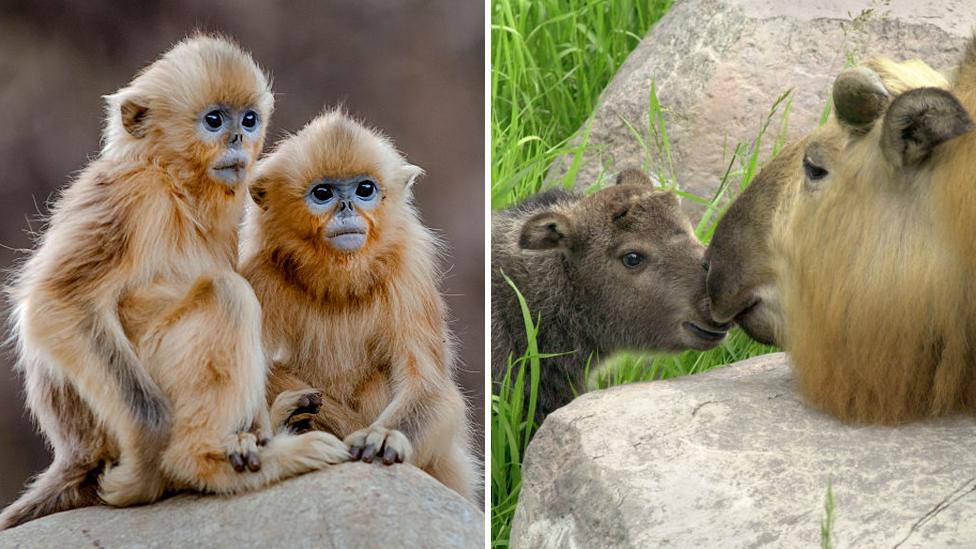Chester Zoo's arrival could boost 'Paddington Bear' species
- Published
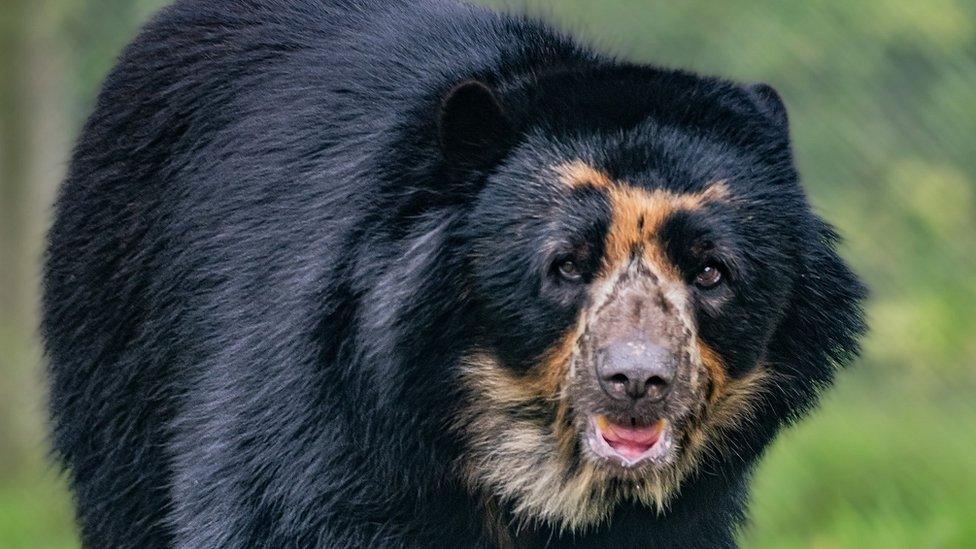
Conservationists hope Oberon the bear will boost the species' numbers
An endangered Andean bear has arrived at a zoo to help boost the species likened to the fictional favourite Paddington Bear.
The 10-year-old male has been brought to Chester Zoo as part of a special breeding programme - and has been selected as a perfect match for their resident three-year-old female.
Fewer than 10,000 Andean bears are estimated to exist in the wild.
Zoo director Mike Jordan said it marked "an exciting new chapter".
Andean bears are also known as "spectacled" bears due to circular golden markings around their eyes.
The animal's natural habitats are the mountains of South America - beyond Paddington's famous home of "darkest Peru" and into Venezuela, Colombia, Ecuador and Bolivia.
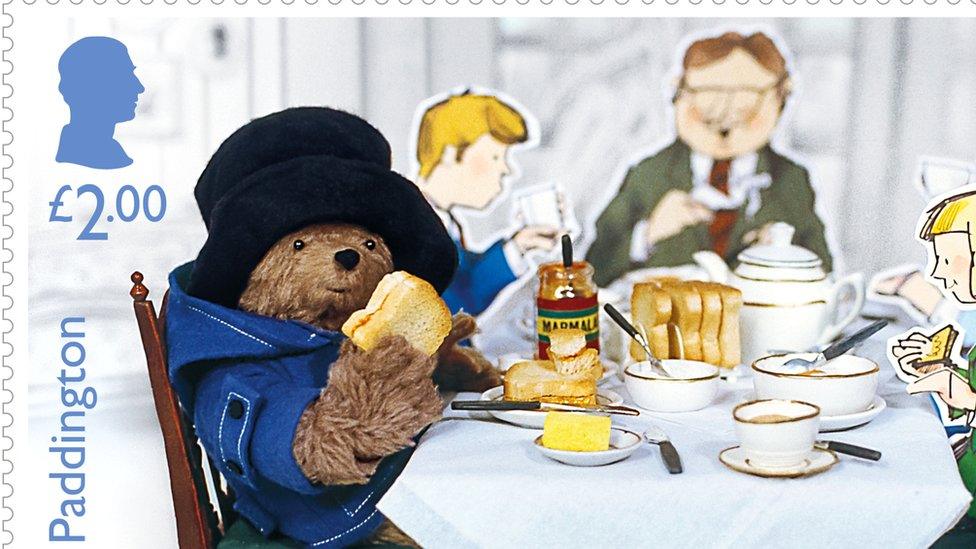
Paddington Bear, who featured on a recent set of stamps, has increased interest in the Andean species
They are noted for having powerful jaws that can munch through hardened vegetative matter, as opposed to the marmalade sandwiches favoured by the children's character created by British author Michael Bond.
Named Oberon, after the king of the fairies in medieval folklore, Chester's the new arrival will be gradually introduced to the zoo's female bear, Pacha.
Mr Jordan said: "Hopefully they'll hit it off and go on to have cubs together, adding a key new bloodline to the endangered species' breeding programme."
Bond's original idea was to have Paddington arriving in England from Africa, but later settled on Peru, home of the spectacled bear, external, after realising there were no bears in Africa.
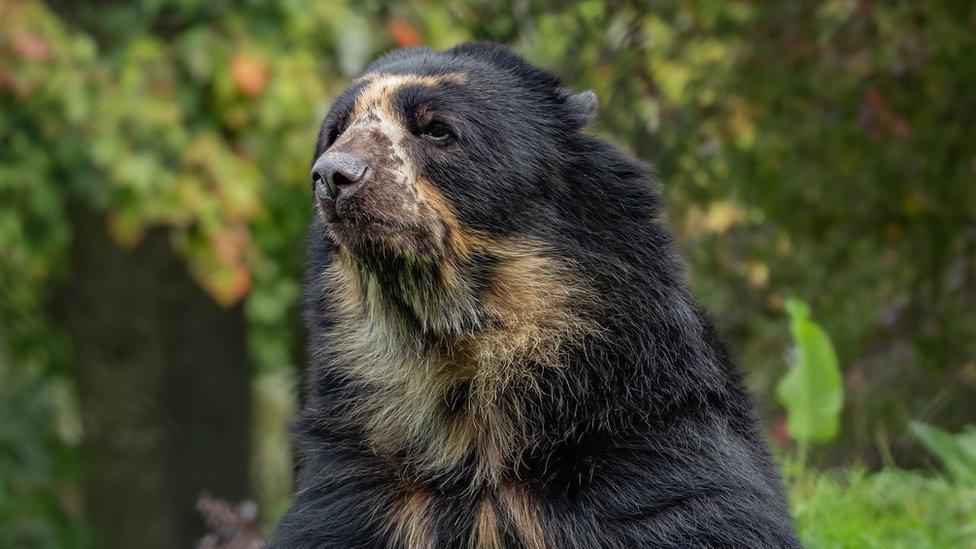
Andean Bears have thick fur and powerful jaws
Paul Bamford, regional field programmes manager for the Americas at Chester Zoo, explained more about why Andean bears are under threat.
He said some share their home with some of Bolivia's poorest rural communities, which can see them come to harm.
"When bears wander into agricultural land and damage crops or kill livestock, it can often result in conflict or retaliation from the communities, which is one of the species' main threats," he said.
Various economic ventures have been set up to try to reduce poverty as a trigger for conflict.
Mr Bamford added: "Harvesting and selling honey, restoring forest habitat and training community members to monitor the bear population are just some of the initiatives that have resulted in a much more peaceful co-existence where both people and bears can thrive together."

Why not follow BBC North West on Facebook, external, X, external and Instagram, external? You can also send story ideas to northwest.newsonline@bbc.co.uk, external
- Published24 February 2023
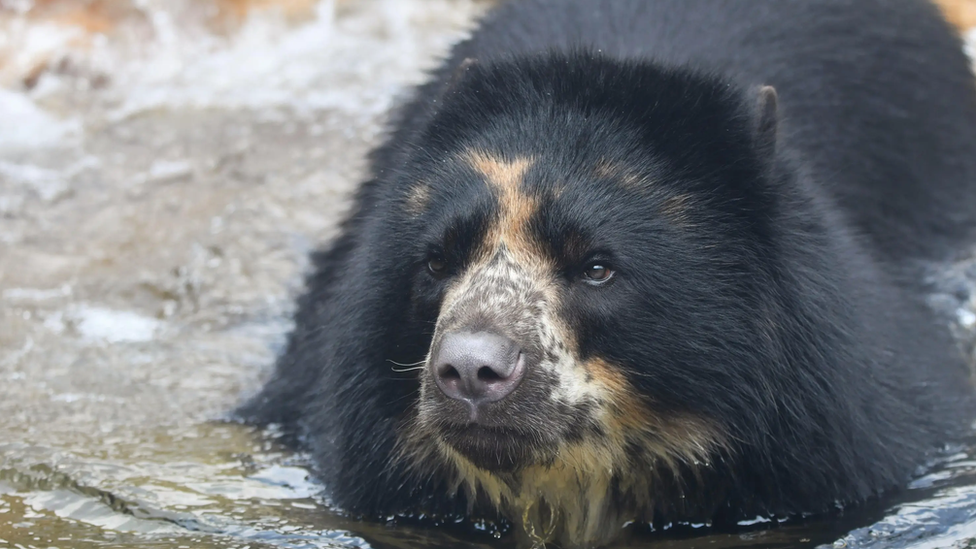
- Published10 May 2022
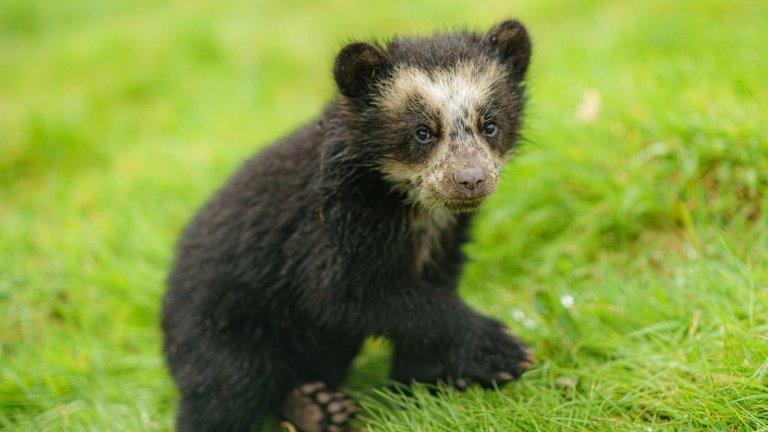
- Published24 February 2020
